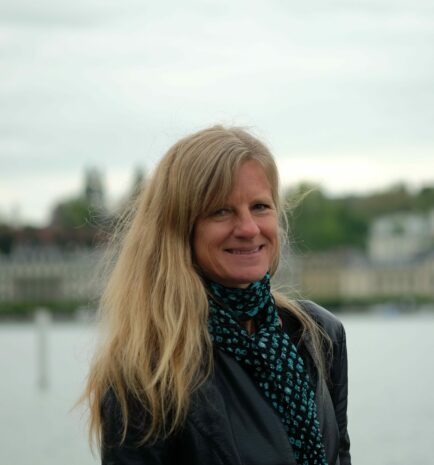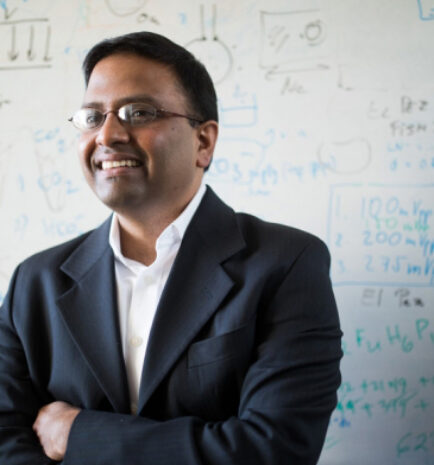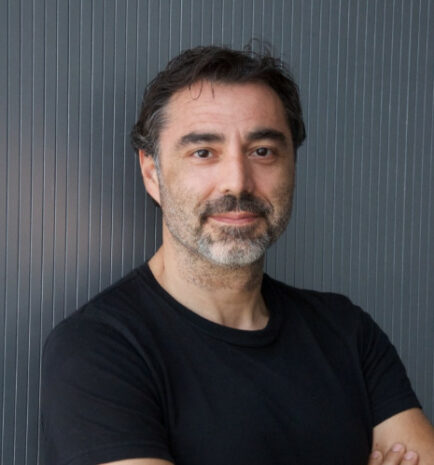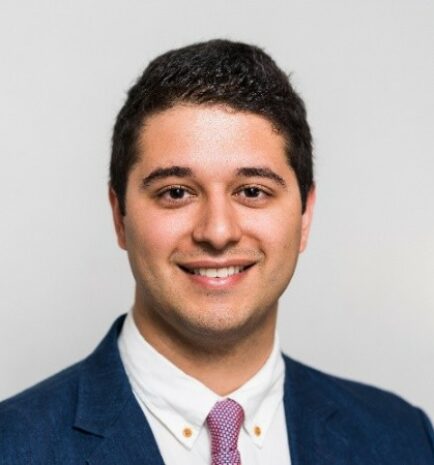
With climate change, the demand for air-conditioned spaces is rising – and with it the energy needed for cooling.
How can we create a more comfortable and sustainable climate-controlled future? This question pushed a group of 10 graduate students from the Lucerne University of Applied Sciences to visit Boston for a month-long bootcamp. They will join a panel of Boston-area experts to present the latest cutting-edge, low-energy cooling solutions.
This event can be joined online or on-site. In-person attendees will get to try special Swiss-designed glasses that can cool your room-temperature drink in just minutes.
Program
- 5:30pm – Event begins
- 5:35pm – Opening remarks
- 5:40pm – Lighting talks
- 6:00pm – Panel Discussion and Q&A
- 6:30pm – Webinar ends
- 7:00pm – In person apero ends
Moderator
-
![]()
Bio
Andrea Weber Marin
Head of Research at Lucerne University of Applied Sciences & ArtsAndrea Weber Marin is head of research at Lucerne University of Applied Sciences & Arts. She studied environmental sciences at ETH Zurich and did her doctorate in the field of industrial and production sciences at ETH. After working in the industry she became a lecturer at the Lucerne University of Applied Sciences. In 2009 she was appointed Vice Dean of the Lucerne University of Applied Sciences and Arts. As a member of the department management, Andrea Weber Marin helps shape the strategic direction of the Technology & Architecture department and strategically and operationally leads the research department.
Expert Panelists
-
![]()
Bio
Kripa K. Varanasi
Professor of Mechanical Engineering at MITKripa K. Varanasi is a Professor of Mechanical Engineering at MIT. He received his B.Tech from IIT Madras, India, and his SM (ME and EECS) and Ph.D from MIT. Prior to joining MIT as a faculty member, Prof. Varanasi was a lead researcher and project leader at the GE Global Research Center.
The focus of his work is in understanding the physico-chemical phenomena at interfaces and developing novel materials, devices, and products that can dramatically enhance performance in energy, water, agriculture, transportation, medical, and consumer devices. He is passionate about entrepreneurship and has co-founded multiple companies such as LiquiGlide, DropWise, and Infinite Cooling for translating the technologies from his lab to market. Time and Forbes Magazines have named LiquiGlide to their “Best Inventions of the Year”.
-
![]()
Bio
Sorin Grama
Co-Founder & CEO, Transaera, Inc. / Co-Founder & Board Member, Promethean Power Systems, Inc.Sorin Grama is co-instructor for the D-Lab courses D-Lab: Design and D-Lab: Design for Scale. Sorin is a former entrepreneur-in-residence at the Martin Trust Center for MIT Entrepreneurship and the Legatum Center for Development & Entrepreneurship, where he brought the experience of starting and scaling a hardware business in a developing economy.
Sorin is co-founder and CEO of Transaera, which has developed a hybrid cooling solution designed to operate a high-efficiency room air conditioner in parallel with a moisture storage battery (MSB) to provide cooling and dehumidification while using dramatically less energy than typical room air conditioners sold today. Transaera was named a finalist for the 2020 Global Cooling Prize.
Sorin also co-founded and served as CEO/CTO of Promethean Power Systems, a manufacturer of thermal energy storage systems for refrigeration and cold-storage applications. Sorin was the principal inventor of Promethean’s thermal battery, an energy storage device that provides effective backup in areas with unpredictable grid power. Dairy farmers and processors in rural India are using this battery to chill milk at village collection centers. Sorin’s company was also one of the four founding companies of Greentown Labs, a grassroots effort that has grown to become the nation’s largest cleantech incubator. He currently serves on the Promethean board.
-
![]()
Bio
Karim Khalil
Co-Founder, CTO at Infinite CoolingKarim is CTO and Co-Founder of Infinite Cooling. Karim has a PhD in Mechanical Engineering from MIT where his research in the Varanasi Research Group focused on thermal fluid systems and capillarity. The research utilized nano-engineered surfaces to bring about efficiency enhancements of large-scale industrial processes, with a focus on energy and water systems.
Karim did his undergraduate work at Duke University, with a major in Mechanical Engineering and Material Science and a concentration in Energy & the Environment. His research focused on a novel self-assembly technique that can build crystalline metamaterials with building blocks ranging from the nanometer to micrometer scale at extremely low cost. Karim was featured in Forbes 30 Under 30 in Energy for his work at Infinite Cooling.
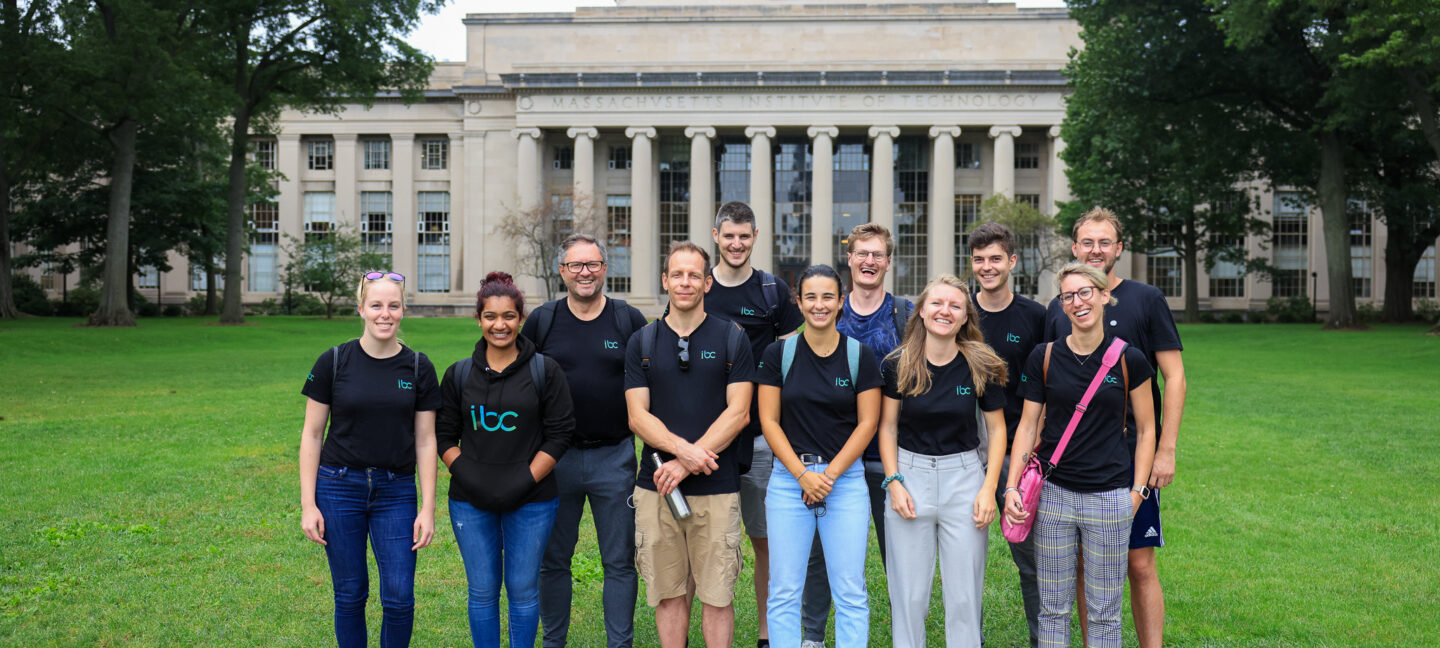
This event will feature two of the graduate students from HSLU Innovation Bootcamp. They will share their findings as the challenge comes to a close.
Collaborators
The Innovation Bootcamp is financed by two HSLU foundations and runs as part of the Energy Lab in partnership with the Varanasi Lab at MIT.
